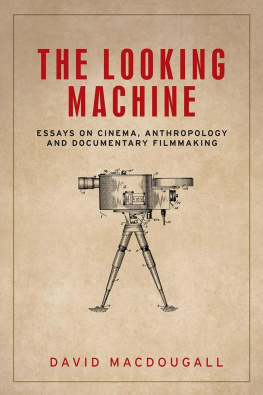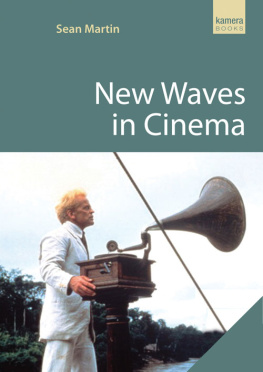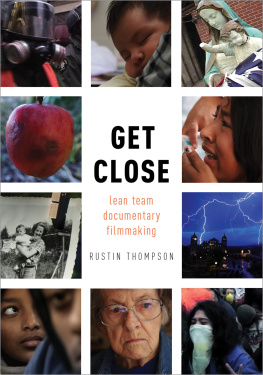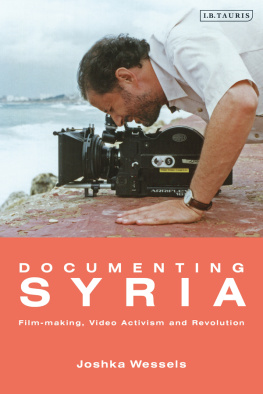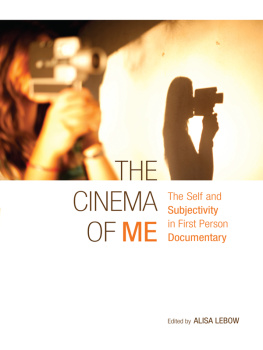The looking machine
ANTHROPOLOGY, CREATIVE PRACTICE AND ETHNOGRAPHY (ACE)
SERIES EDITORS: PAUL HENLEY AND ANDREW IRVING
Anthropology, Creative Practice and Ethnography provides a forum for authors and practitioners from across the digital humanities and social sciences to explore the rapidly developing opportunities offered by visual, acoustic and textual media for generating ethnographic understandings of social, cultural and political life. It addresses both established and experimental fields of visual anthropology, including film, photography, sensory and acoustic ethnography, ethnomusicology, graphic anthropology, digital media and other creative modes of representation. The series features works that engage in the theoretical and practical interrogation of the possibilities and constraints of audiovisual media in ethnographic research, while simultaneously offering a critical analysis of the cultural, political and historical contexts.
Forthcoming titles
Paul Henley, Beyond Observation: Authorship and Ethnographic Film
Christian Suhr, Descending with Angels: Islamic Exorcism and Psychiatry A Film Monograph
In association with the Granada Centre for Visual Anthropology
The looking machine
Essays on cinema, anthropology and documentary filmmaking
DAVID MACDOUGALL
Manchester University Press
Copyright David MacDougall 2019
The right of David MacDougall to be identified as the author of this work has been asserted by him in accordance with the Copyright, Designs and Patents Act 1988.
Published by Manchester University Press
Altrincham Street, Manchester M1 7JA
www.manchesteruniversitypress.co.uk
British Library Cataloguing-in-Publication Data
A catalogue record for this book is available from the British Library
ISBN 978 1 5261 3409 7 hardback
ISBN 978 1 5261 3411 0 paperback
First published 2019
The publisher has no responsibility for the persistence or accuracy of URLs for any external or third-party internet websites referred to in this book, and does not guarantee that any content on such websites is, or will remain, accurate or appropriate.
Typeset in Bembo
by R. J. Footring Ltd, Derby, UK
For Colin Young
Contents
T HE aim of the series Anthropology, Creative Practice and Ethnography (ACE) is to explore the ethnographic understandings of social, cultural and political life offered by visual, acoustic and textual media. It will be offered in a range of formats, including comparative and general works, monographs, edited collections and audiovisual media.
New technologies enable the documentation of the embodied, experiential and sensorial dimensions of social and cultural life to unprecedented degrees but these representations urgently call for the ethnographic grounding and understanding that anthropology brings to creative, audiovisual and technical practice. We shall be particularly interested in working with authors and Manchester University Press to explore the various ways in which written texts may be placed in a creative dialogue with online resources. Our aim is to go beyond the standard study guide model in which the printed and audiovisual components are merely juxtaposed or whereby the book offers little more than an explanation of the audiovisual resource or vice versa. Instead, we envisage a range of different formats through which the book and the audiovisual components may inform and extend beyond each other or alternatively exist in a productive tension.
We are delighted to be able to launch the series with The Looking Machine, a timely and important collection of essays by David MacDougall, in which he writes with characteristic elegance about the related fields of cinema, anthropology and documentary film. MacDougall brings new insights into cognition, sensory perception and the act of looking, drawing on a wide range of literary, theoretical and cinematic inspirations, as well as his unrivalled career and influence as an ethnographic filmmaker. Other works by senior figures in visual anthropology and film are currently in production. We are also keen to encourage submissions from new authors from a broad diversity of backgrounds, including those from outside the English-speaking world.
We very much look forward to hearing from authors interested in contributing to this collective adventure in contemporary ethnographic representation.
Paul Henley and Andrew Irving
Granada Centre for Visual Anthropology, University of Manchester
T HE writing of these essays has been made possible by the support of a number of institutions and individuals. The Research School of Humanities and the Arts at the Australian National University has provided a congenial place to work and institutional support for both my filmmaking and my writing. I am grateful to the Australian Research Council for an Australian Professorial Fellowship and a Discovery Project grant that allowed me to continue my visual research on institutions for children in India and to conduct the collaborative project Childhood and Modernity: Indian Childrens Perspectives. Much of this book was written in India while engaged in these activities. I am particularly indebted to the Delhi School of Economics at the University of Delhi, which hosted me on several occasions, to Rishi Valley Education Centre in Andhra Pradesh, where I wrote a number of the essays, and to Seva Mandir in Udaipur, which helped me in countless ways during my stay in Delwara.
I am also grateful to a number of colleagues and friends who have provided inspiration, friendly encouragement and sometimes actual physical space for my writing. They include Andreas Ackermann, Peter Crawford, Anna Grimshaw, Frank Heidemann, Paul Henley, Radhika and Hans Herzberger, David Howes, Peter Loizos, Judith MacDougall, Howard Morphy, Christopher Morton, Luc Pauwels, Paolo Piquereddu, Rossella Ragazzi, Ivo Strecker, Colin Young and Salim Yusufji.
Several essays in the book have appeared elsewhere, some in slightly different versions. For permission to include them here, I should like to thank the following publishers: Berg Publishers for The experience of colour () appears in Anthropology as Homage: Festschrift for Ivo Strecker, published by Rdiger Kppe Verlag, Kln, 2018.
M OST of the reflections on films and filmmaking in this book were written in the intervals between days and weeks of filming. For that reason they tend to focus on the immediacy of film images, both on the screen and, perhaps as much, when seen through the viewfinder of a camera. My underlying aim has been to bring the two experiences closer together, shifting that of the film viewer a little nearer to that of the filmmaker. This is a book of personal observations based on my own practice and film viewing rather than a book of general film history or theory. I can therefore make no claim to being encyclopaedic, whether writing about documentary or about fiction films. In many ways these are speculative essays, reflecting both convictions and uncertainties, and the intermediate position of someone whose career spans documentary filmmaking and anthropology.
The book is in three parts, moving from a personal to a wider view; from the immediacy of filmmaking to the ways that films address us as viewers; and from the growth of documentary cinema as a genre to its role in anthropology and public discourse. is primarily concerned with documentary cinemas powers of representation in academic and public life. Particular attention is paid to the development of observational cinema and visual anthropology. Here I discuss some of the misconceptions, theoretical questions and practical problems that arise in this work. In the closing chapter I cast a broader glance at the history of documentary and call for a reinvestment in the ideas that originally inspired it.

